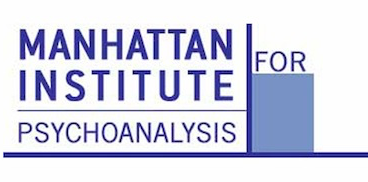In the short time since the current coronavirus pandemic reached our shores, much has been written about the challenges of this experience. There is tremendous anxiety for the well-being of our patients, colleagues, family members, and ourselves. There is no shame in admitting that. There is loss, the loss of personal contact, the cocoon of the office, the physical environment as an extension of our personalities, the décor, the view, the material manifestation of the holding environment, so carefully designed over the years. Personally, I also worry about my beloved plants, four of them to be precise. How long will they survive? So far, a colleague has been generously watering them, but how much longer can she continue to do so? And how much longer do I want her to? I already feel guilty for accepting. As much as I love my plants – and I really do – I am sure that my heightened concern for them is a displacement of terror about and anticipatory grief for the people at risk: my potential body count.
Then there is the adjustment to remote work, starting to see patients in an alternate space. Those who could left town and set themselves up in less densely populated areas; some are reconfiguring their living quarters to carve out a private corner suitable for confidential communication. Some still go to an office, especially if they can walk there; some scramble. Some people, especially those new to teletherapy, struggle with the technological learning curve and with the impact of technology on the analytic relationship and the transference-countertransference matrix.
Still, what I wish to address here is the silver lining, however thin it may be. I must say that I am blown away by the speed and ease with which, as a group, we transitioned to the new reality. Based on my rather unscientific survey, on Friday, March 13th, most of us went to the office and saw patients there. Then by Monday, March 16th, the majority worked from someplace else. People who claimed to have barely known how to open a computer are now communicating via Zoom, Skype, FaceTime, you name it.
Most importantly, the question of whether this is psychoanalysis seems to have been settled for now, and I sincerely hope once and for all: It is! On various listservs I read the occasional clinician bemoaning what they refer to as the dilution of the transference, the degradation of the frame, but by and large psychoanalysts, in this country and over the rest of the globe, have come to accept that this is the best we can do at the moment, the new normal. The unspoken implication seems to be that if a trained psychoanalyst works with a psychoanalytic mindset, that is with the willingness and ability to engage the transferential processes, that is psychoanalysis, regardless of whether the work takes place in the office, at a country estate, or in a bunker; regardless of whether the patient is lying on the couch or sitting face-to-face; regardless of whether we are in the same physical space or on Zoom or Skype. Iconoclastic as it may be, I believe that we as a field have made a fetish out of the personal preference of the founding father, who did not like to be gawked at all day.
Personally, I prefer to work with patients on the couch. I find that it facilitates reverie (even though I can stare out the window and watch the sky with a patient sitting across from me all the same), but I can’t say that it is always richer or deeper that way. With some, yes; with others, face-to face communication can prove to be a treasure trove. What does the patient’s facial expression communicate? What about their gestures or mine? What do they see in me that I am not aware of? This aspect of the work is further accentuated through video. We can both see a lot of detail, a blow-up. Just like in the 1966 Antonioni movie of the same name, on the enlarged copy we notice details that previously escaped our attention. I learn so much! I also get a glimpse of the environment: the meticulously arranged furniture or the disarray; the poverty or the wealth of the interior.
I hope that this unmitigated catastrophe will ultimately usher in a period of increased awareness of our fragility as a species, including our susceptibility to climate change, to ruthless exploitation, and also a move toward a more democratic and egalitarian era of psychoanalysis, at least for those who survive. I hope that virtual therapy is here to stay and that it will remain a viable option for candidates and experienced practitioners alike. I hope that we can expand the reach of analytic treatment to underserved communities, members of which may not be able to trek multiple times a week to a desirable practice location, and facilitate the establishment of community psychoanalysis.
“But it is not psychoanalysis” has always been the battle cry of the elites, of the groups with the most power, who would tenaciously guard the gates of their professional affiliations to keep out the uninitiated in order to secure their continued prestige and financial rewards. Much has changed in this regard over the past few decades, but not nearly enough. I am looking forward to a post-corona, post-apocalyptic expansion of psychoanalysis for the people, by the people. I hope I will live to see the day.
Veronica Csillag, LCSW, is co-director, faculty, training and supervising analyst, Manhattan Institute for Psychoanalysis; former faculty, NYU School of Social Work. She is the author of several psychoanalytic papers, which were published in a variety of journals, The American Journal of Psychoanalysis, Psychoanalytic Dialogues, and The Psychoanalytic Quarterly among them. She is in private practice in New York City.
To contribute to the special series on COVID-19, send blog posts of up to ~1,000 words (read full submission guidelines here) to Analysis Now blog co-editors Justine Duhr at justinetduhr@gmail.com and Robert Levin at rob@robertlevinlcsw.com.
If you enjoyed this post, we recommend:
Special Series on COVID-19 by Justine Duhr, MFA, and Robert Levin, LCSW
Thinking Analytically in the Time of COVID-19 by Sandra Green, LCSW
Minding COVID-19: Re-establishing Communication Through Mentalizing by Troy Becker, Psy.D.
How Can We Wake up From This Bad Dream? by Irina Simidchieva
An Elegy for My Office From a Psychoanalyst Working Remotely by Blair Casdin, LCSW








7 Comments
Leave your reply.